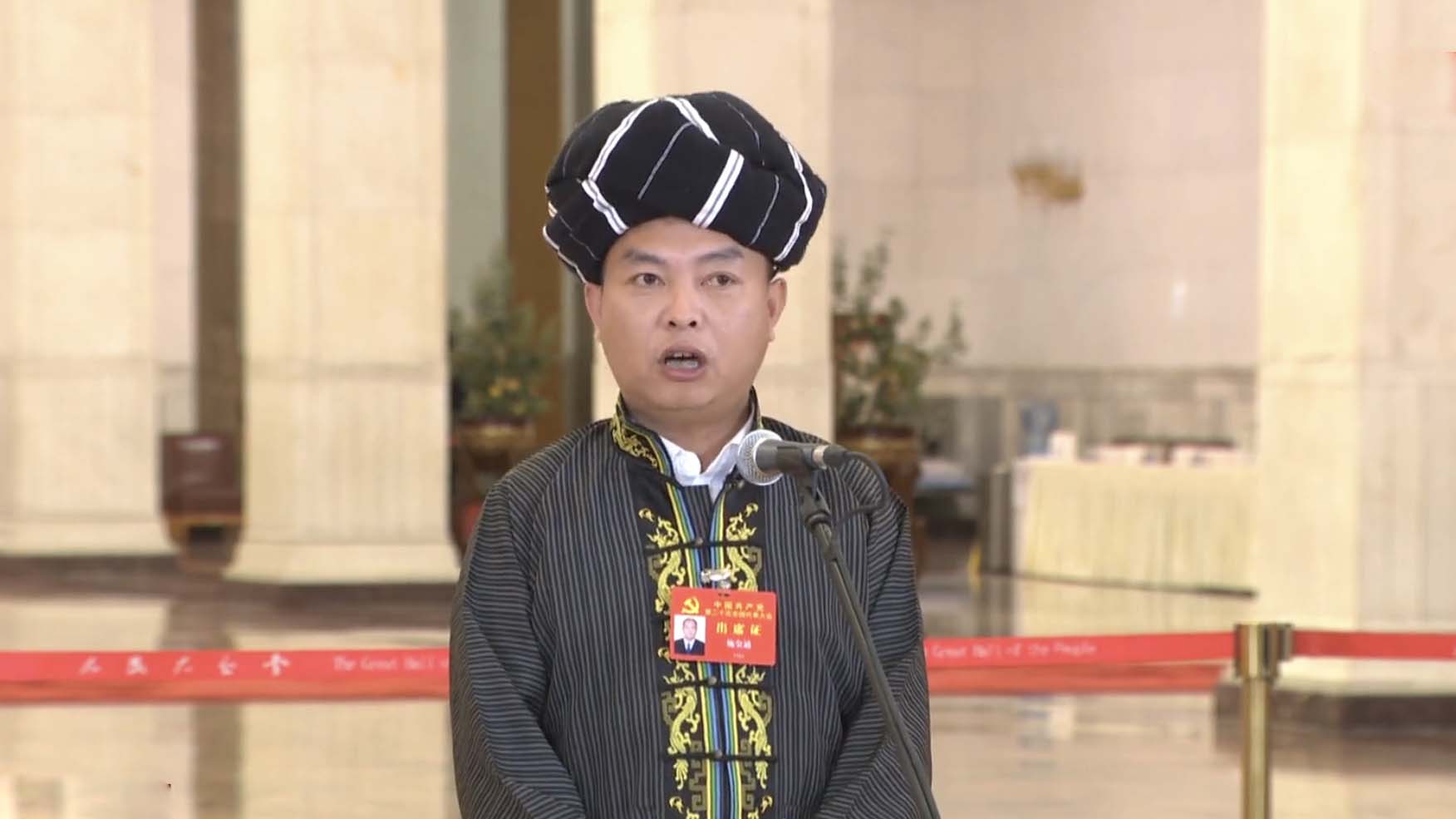Delegates to the 20th National Congress of the Communist Party of China (CPC) have spoken highly of the Party's work to improve conditions in rural areas across China.
Liu Xiuxiang, from Wangmo County in southwest China's Guizhou Province, on Saturday said basic education infrastructure there had been comprehensively improved in the past decade, with the local school having the nicest buildings and the best environment across the county.
Education quality has also been drastically strengthened, Liu, the vice-principal and a history teacher at Wangmo Experimental High School, said at the "Delegates' Corridor" after the conclusion of the 20th CPC National Congress at the Great Hall of the People in Beijing.
In 2012, only 70 students in the county made it to college, while that number reached over 1,300 just 10 years later, he noted.
Unlike the old days when he had to work hard to convince many parents of the importance of education, Liu said most families now appreciate it, and youths from rural areas now have more options.
Shi Jintong, Party chief of Shibadong Village in Xiangxi Tujia and Miao Autonomous Prefecture in central China's Hunan Province, said his village had benefited a great deal from the nationwide poverty alleviation campaign.
02:21

Shi said many young people returned from big cities to the village after it saw "earthshaking changes" thanks to a strategy called targeted poverty alleviation.
"Some became tour guides, some became village officials and some even started their own businesses" in the village where an abundance of kiwi fruit, camellia oil and other produce has driven the rise of multiple sectors, he said.
The average income in Shibadong has risen to 23,505 yuan (about $3,200) now from 1,668 yuan in 2013, Shi noted.